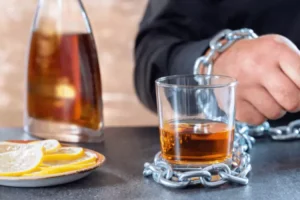
Understanding the impact of alcohol on blood thinning is a matter that should be taken seriously. Always consult with healthcare professionals for personalized advice and guidance based on individual circumstances. Both alcohol and blood thinners independently contribute to blood thinning.

Oxidative Stress
One of the problems with alcohol being a blood thinner is that drinking also increases your risk of falling or being in an accident. If you fall and injure yourself while drinking, you’re likely to bleed more than you would have if you were sober. Consuming alcohol before surgery increases the risks of various health complications.
Individual Differences in Response to Alcohol
While moderate alcohol consumption may not pose significant risks for most individuals, it becomes a crucial consideration for those taking medications known as blood thinners or anticoagulants. Alcohol affects how well your blood clots, potentially negating the effects of the blood thinners or increasing them to a dangerous level. Further, alcohol can affect how long it takes for your body to process blood thinners. This can cause the medication to stay active for longer and have a greater effect than it should.
How Long Do These Effects Last?

Explore the benefits of Pulsed Field Ablation (PFA), a revolutionary non-thermal technique for treating atrial fibrillation, promising reduced recovery time and minimal damage. Having discussed how to manage alcohol misuse, let’s examine the possible interactions between Eliquis and other medications. The relationship between alcohol and AFib is particularly alcohol as a blood thinner concerning as alcohol can act as a trigger for AFib episodes. The exact mechanisms are complex and multifaceted, but it is known that alcohol can affect the electrophysiology of the heart, altering its normal rhythm. This heightened risk of bleeding can be quite dangerous, potentially escalating minor injuries into severe bleeding events.
What are some signs I should call a doctor?
Another trend in recent studies of alcohol and CV risk and disease is to include a measurement for binge drinking. In most investigations, this means consuming more than 5 standard drinks on a single occasion for men and more than 4 standard drinks for women. NIAAA defines binge drinking as a pattern of drinking alcohol that brings the blood alcohol concentration to 0.08 percent or above. A typical adult consuming the defined number of standard drinks for binge drinking would reach a blood alcohol concentration of 0.08 in about 2 hours (NIAAA 2015b). It’s important to note that the effects of alcohol on blood can vary depending on various factors, such as the amount and frequency of alcohol consumption, overall health, and individual differences. If you or someone you know is struggling with alcohol addiction, seeking professional help is essential.
- If you’re taking a blood thinner, it’s highly likely that ginkgo biloba tea could interact with it and alter its effectiveness.
- If you or someone you know is struggling with alcohol addiction, seeking professional help is essential.
- Looking to help someone with their alcohol addiction, we have provided some more information for those seeking guidance.
- There are two main types of medications — anticoagulants and antiplatelets — a doctor may recommend depending on the reason for needing them.
They also encourage people who drink to do so in moderation in order to minimize some of the potential negative side effects of long-term alcohol use. Several studies have been published that link heart health with red wine, as Mayo Clinic reports that a daily glass of red wine may have certain health benefits. Wine, especially red wine, contains antioxidants that may help to increase levels of good cholesterol and prevent cholesterol buildup; this may result in decreased risk of coronary artery disease and subsequent heart attacks.

But it’s a topic you should talk about with yours when you have deep vein thrombosis. Always consult your healthcare provider to ensure the information displayed on this page applies to your personal circumstances. In addition, some direct-acting oral anticoagulants are broken down in the liver for excretion. If you have liver disease or a history of liver disease, tell your healthcare provider. Understanding the facts can help dispel misconceptions and provide a clearer understanding of the relationship between alcohol and blood thickness.

- When combined with alcohol use, however, the risks become much more severe.
- Blood thinners are a category of medication that helps prevent the formation of blood clots within the bloodstream, a process known as hemostasis.
- ” First, let’s talk about the uses of Eliquis and other safety information.
- In the Miró study, alcohol drinkers also had been receiving pharmacologic treatments such as beta-adrenergic blocking agents that reduce blood pressure and also may have antioxidant effects.

